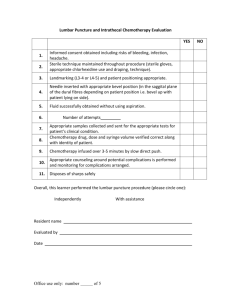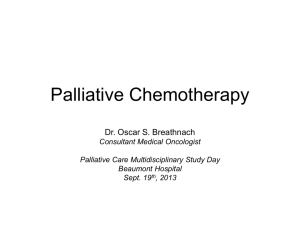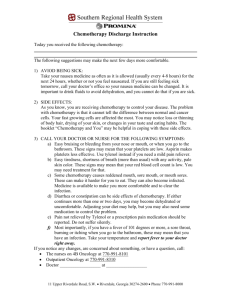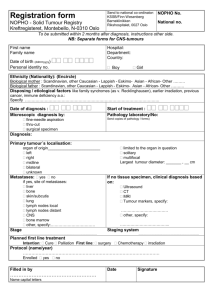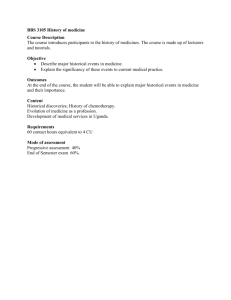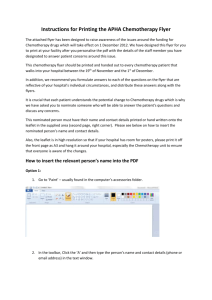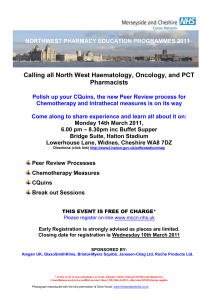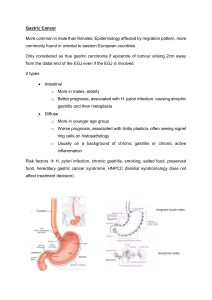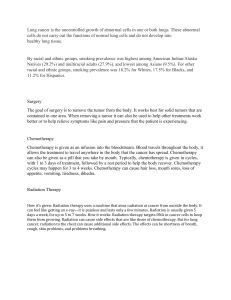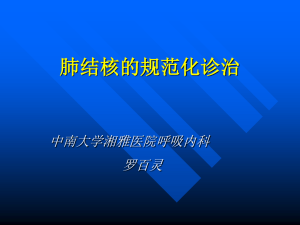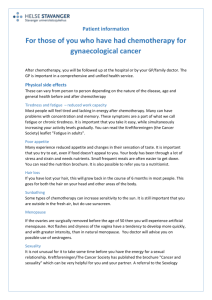Cancer-as-a-Long-Term-Condition-Alastair-Smith-April
advertisement
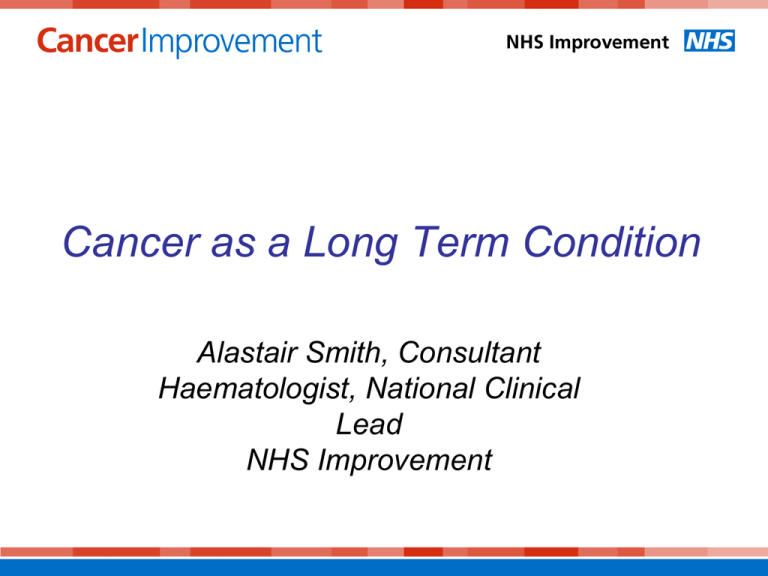
Cancer as a Long Term Condition Alastair Smith, Consultant Haematologist, National Clinical Lead NHS Improvement Chronic cancer – patient story; F dob 1944 • • • • • • • • • • • 10/1996 – back pain Myeloma 11/1996 – 05/1997 - chemotherapy, analgesia, peripheral blood autologous stem cell transplant (“professional cancer patient”) 09/1997 – back to work; teaching; Fentanyl patches retiral c 2002 12/2004 – sternal & spinal lesions 01/2005 – local irradiation, chemotherapy – ongoing to 09/2005 05/2005 – rib irradiation 06/2006 – balloon kyphoplasty L4 07/2007 – 03/2008 – chemotherapy, Bortezomib O3/2010 – progression, starting chemotherapy, Lenalidomide 15- 20 year survival from diagnosis likely Cancer has changed.. •Use the word & more honest with patients – •Improved & new chemotherapy •Better side effect management •Better radiation therapy •Speedier access to diagnosis •Increased specialist expertise •Palliative Care services & support BUT….. … some way to go! • Speedier diagnosis – 2/52 waits etc WEAK PUBLIC & “PURCHASER” UNDERSTANDING • “CURED” of cancer – done in secondary care - i.e. “the hospital” • Treatment improvements • Improved clinical/pathological outcomes • “DYING” of cancer – Palliative care = terminal care • Don’t really understand “living with cancer” The Survivorship Care Pathway Diagnosis Primary treatment ACP: disease, treatment, person Curative intent Late consequences of treatment Recurrence Chronic cancer Key Trigger points Remains well 2nd & subsequent treatments End of life care Challenges • Redesigning to achieve services that: – Are focused on the patient (not the system) – Have quality as the driving force • But – Needs to ensure right skills, available in the right place at the right time – Services based on evidence and needs of the person, their disease and the treatment they have received – Offer value for money, be safe, effective, enhance the experience of care and improve clinical and patient reported outcomes What can you expect from today? • Update on what is happening Nationally and the challenges being addressed • Changing traditional thinking/perspectives on “cancer” • The cancer improvement story influencing tomorrow’s service delivery from a commissioning, NCSI, NHS Improvement, independent sector and charity perspective Survivorship Dying of ------ ? Living with ----- ? Support/care needed to be oneself --- to be “normal” Not to be “over medicalized”

